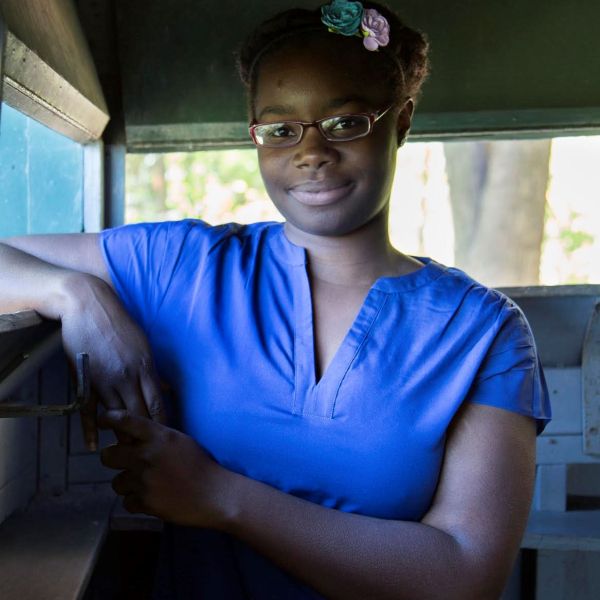Image

-
Nicole Jackson
Environmental Educator, The Ohio State University - School of Environment and Natural Resources
- CCC Fellow
Climate Change and Food Systems:In 2010, around one-third of the food produced in the United States was not consumed, and ended up being wasted. Food waste is the main source of garbage in landfills and producing the food we throw away generates more greenhouse gases than most entire countries do. In addition, the impact of climate change on food production can already be seen, and will worsen as climate change gathers pace. First, slow-onset changes in mean temperature and precipitation patterns are putting downward pressure on average global yields. Added to this are crop losses resulting from more frequent and intense extreme weather events. With cities growing bigger and climate change affecting food access for many around the globe, this concerning information will continue to hinder families financially.My action plan will consist of developing a 6 to 9-month community-based program that will look into how reducing food waste could ease the effects of climate change in urban environments. I would like to work with local food banks, urban farmers, CSAs and organizations to collect data regarding food security. Topics covered will include climate change, food production, food waste, and the food transportation system (i.e. harvesting, distribution, packaging, etc.) With this program, I hope to teach my community about the importance of not only having access to healthy foods, but learning how to reduce food waste in the home.
Nicole is an environmental educator and is currently working as an Educator and Camp Coordinator at Franklin Park Conservatory and Botanical Gardens. Her duties include creating, planning, and implementing garden adult education and school programs for grades pre K-12. She also manages high school interns and coordinate summer camps that focus on butterflies, environmental education, horticulture, and botany. She received her Bachelor of Science degree in Natural Resources from The Ohio State University in 2011. She majored in Parks, Recreation & Tourism and her studies focused on Environmental Education and Interpretation, which allowed her to learn more about topics such as environmental stewardship, environmental literacy, and capacity building.After college, Nicole was determined to find more opportunities relating to connecting her community to nature and the environment. Since 2012, Nicole has taken a few non-credit online courses through Cornell University’s Civic Ecology Lab. Some of the topics included Urban Environmental Education, Environmental Education in faith-based communities, and capacity building. Some of her other endeavors included creating a bird conservation action plan as a youth fellow through TogetherGreen, participating in the 2013 Natural Leaders Legacy Camp of the Children & Nature Network, and receiving a scholarship to attend the 2013 North American Association of Environmental Education conference in Baltimore, Maryland. These opportunities were made available to her because of her great networking skills. Connecting people to each other and the environment has always been a passion of Nicole’s and she wants to continue helping others in her community become better environmental stewards.Last year Nicole was selected to be a fellow for the Outdoor Afro Leadership Team. The mission of Outdoor Afro is to get more people of color connected to the outdoors and nature. Fifteen members were selected from major cities across the U.S. including Ohio, which has been chosen for the first time since the team was created in 2009. Nicole’s hobbies include birding, hiking, and leading informal environmental education programs.